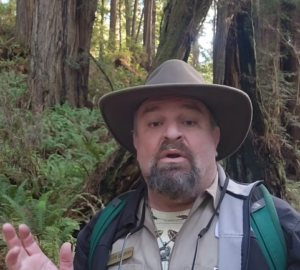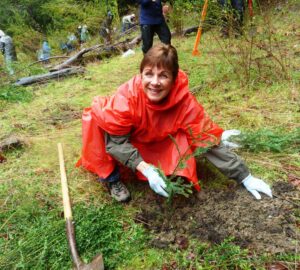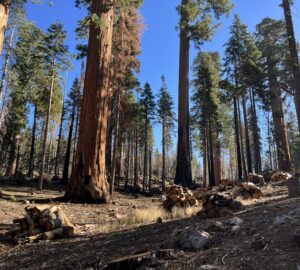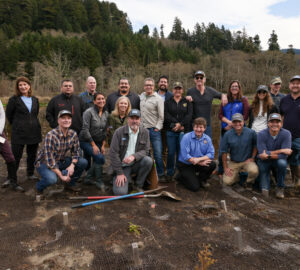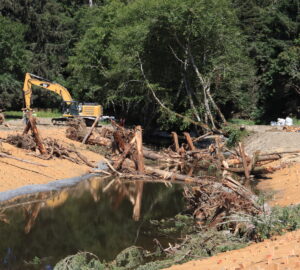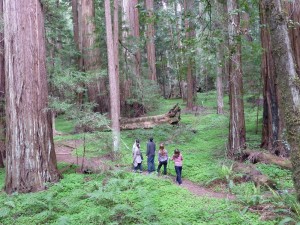
Like many in the land conservation arena, I often use the term “land ethic” in discussing the vision and work of Save the Redwoods League and our partners. As the League approaches its 100th anniversary, I’ve been thinking a lot about what it means to have a land ethic today.
The notion of a “land ethic” originated in the 1940s with Aldo Leopold (1887-1948), whose A Sand County Almanac is considered by many to be the bible of the conservation movement. In it, Leopold — who is described by the Aldo Leopold Foundation as “a conservationist, forester, philosopher, educator, writer, and outdoor enthusiast” — examined the relationship between people and the natural world, and introduced the concept of a land ethic. In Leopold’s words:
The land ethic simply enlarges the boundaries of the community to include soils, waters, plants, and animals, or collectively: the land. … A land ethic changes the role of Homo sapiens from conqueror of the land-community to plain member and citizen of it. It implies respect for his fellow-members, and also respect for the community as such.
The idea was, and still is, a profound guiding principal of the conservation movement. It reflected a major shift in Americans’ relationship with our natural landscape; a shift that had been central to the work of Save the Redwoods League for 20 years by the time Leopold gave it a name.
Leopold’s vantage point as an ecologist-philosopher shines through as he explains, “That land is a community is the basic concept of ecology, but that land is to be loved and respected is an extension of ethics.”
He continues, “A land ethic, then, reflects the existence of an ecological conscience, and this in turn reflects a conviction of individual responsibility for the health of land.”
A community made up of soil, water, plants, animals and people. An ecological conscience. Places we love and respect. Responsibility for the health of the land.
Leopold’s ideas gave voice to a changing sensibility of our place in the natural world. They offered a philosophical perspective on the cultural shift happening in America in the early 1900s rooted in our relationship with the land. This perspective was core to the growing conservation movement that Save the Redwoods League had helped to initiate, a perspective that saw tremendous community value in the wild places of our country and that worked to save those special places for the benefit of all.
After inspiring generations of land conservation, what does a land ethic mean for us today? For the League, much of the redwood forestland that we protect has been disturbed by past human activities. Our responsibility, then — guided by our land ethic, our ecological conscience — is to restore the health of the land, to rebuild the community we once damaged. Where then we were “conquerors” we can now be good citizens. We are working together to help our larger community recover, from the mighty redwoods to tiny insects and the land on which we all depend.
You can live out the land ethic in countless ways, from simply spending time in nature or biking to work, to teaching kids to love the outdoors, or paying more attention to how we as a society steward our shared natural community. Let me know what the land ethic means to you!
Be sure to come back and check out Richard Campbell’s Aldo Leopold-inspired blog next week! And, March 1-3 is Aldo Leopold weekend. Learn more about Leopold and find an event near you.
Let’s keep in touch on Twitter! Follow me at @SamH4Redwoods for news and insights about redwoods and conservation.



